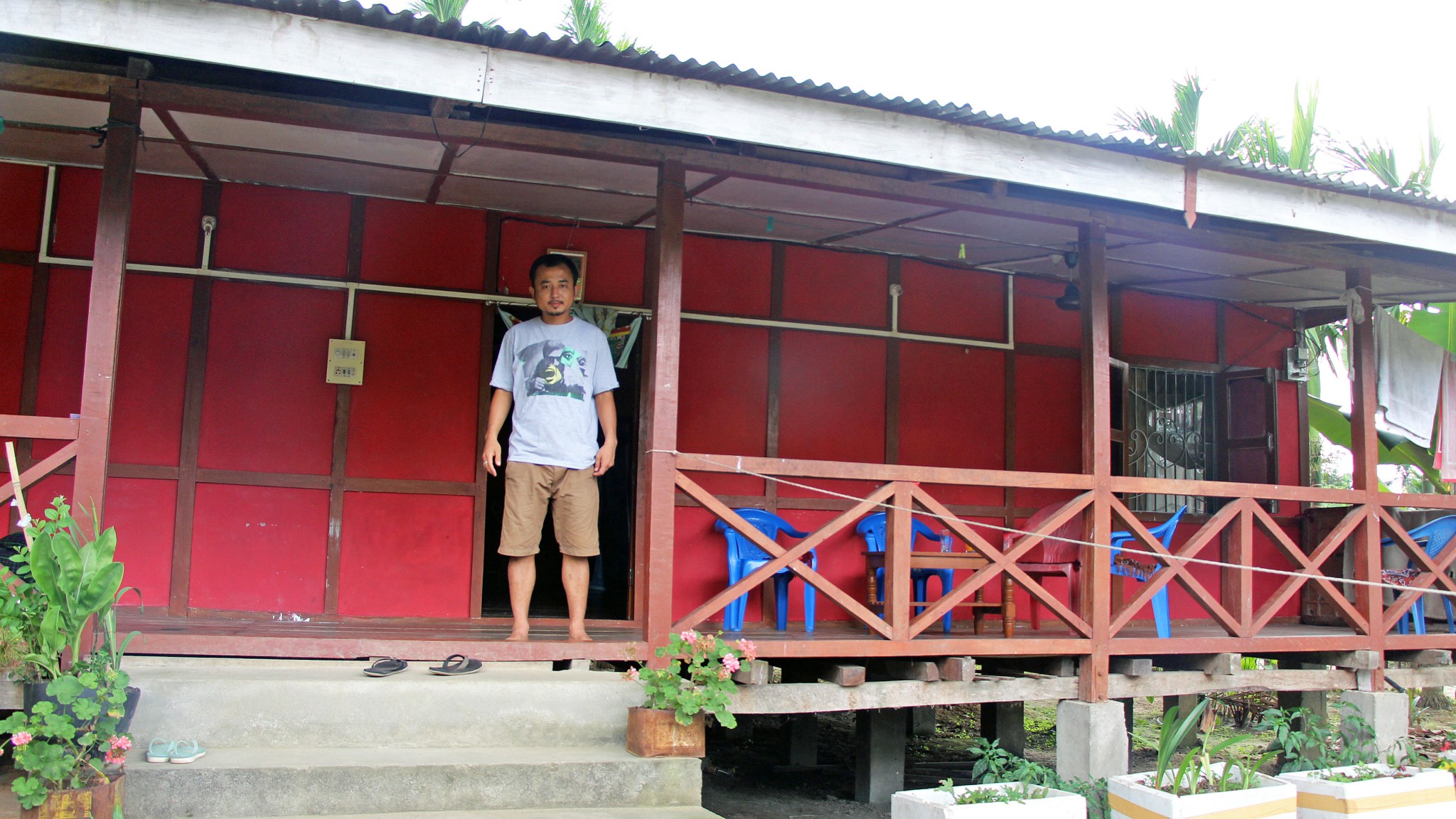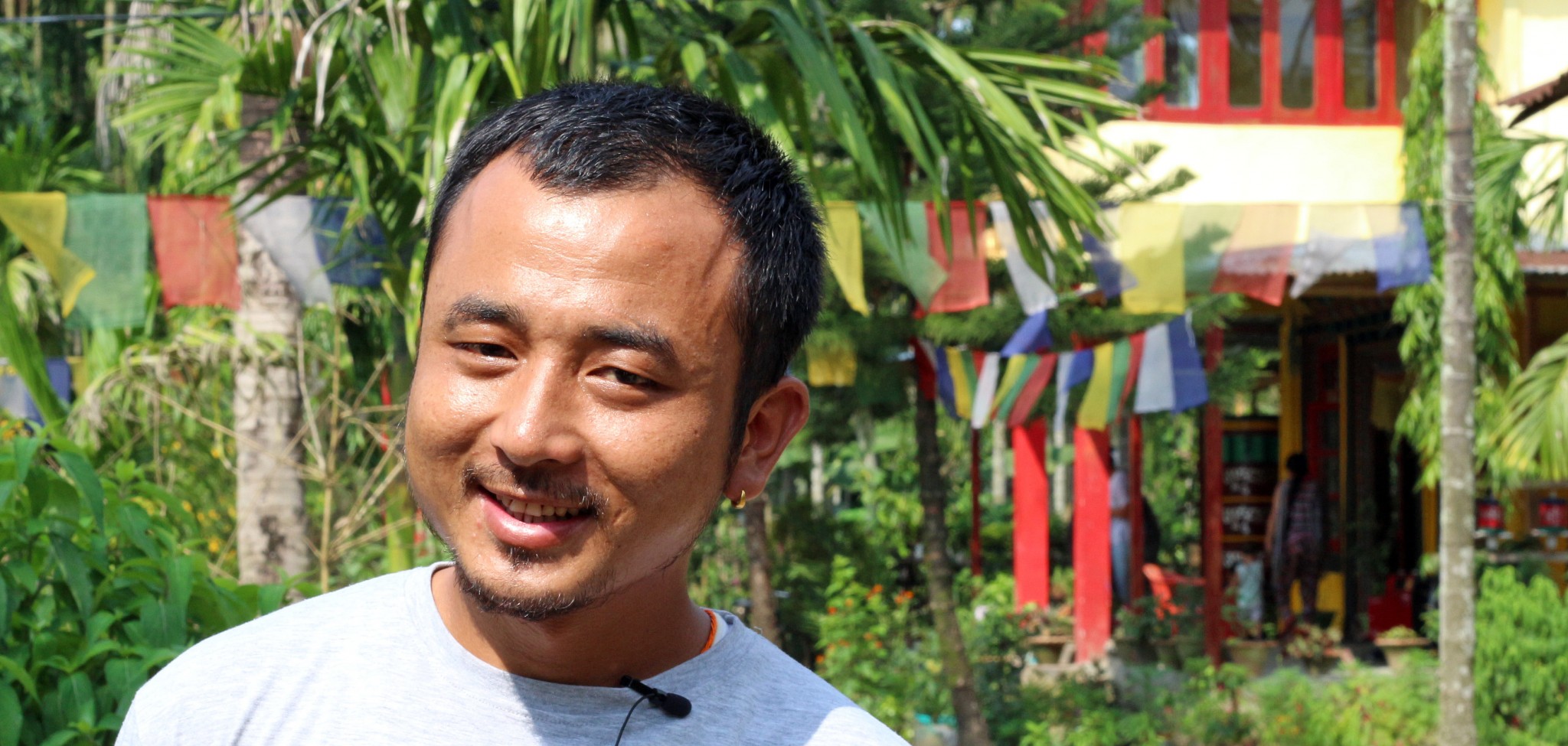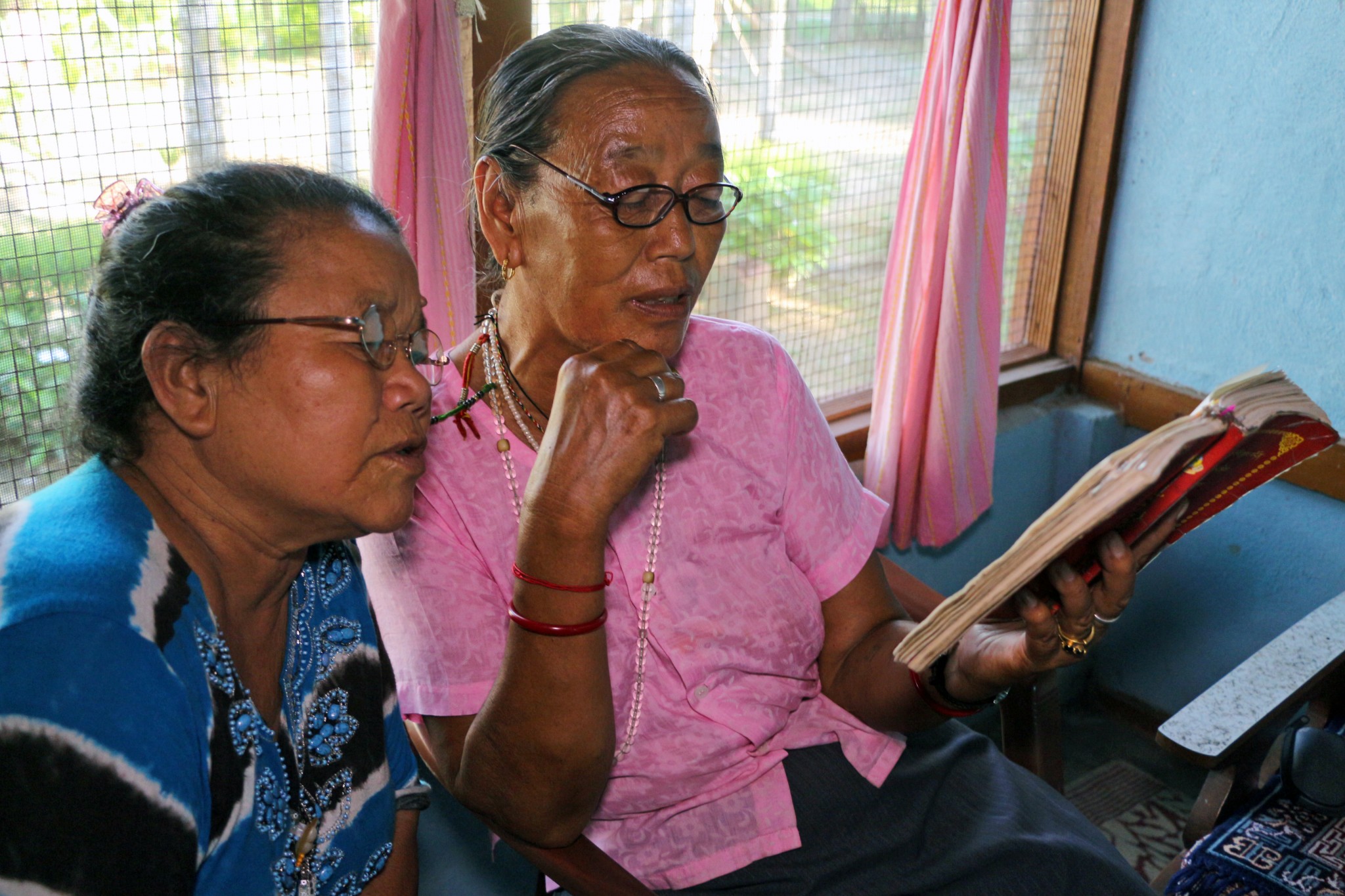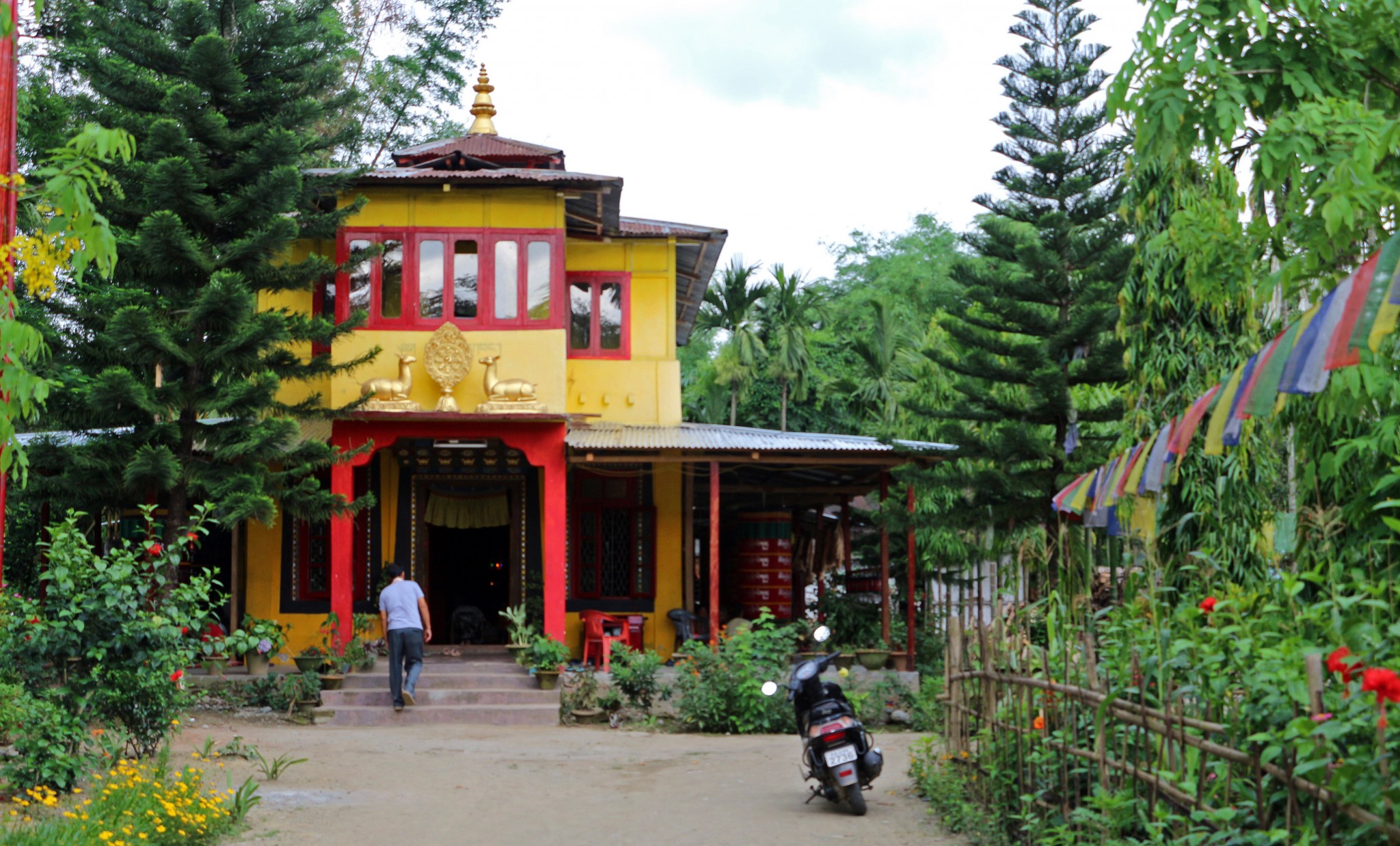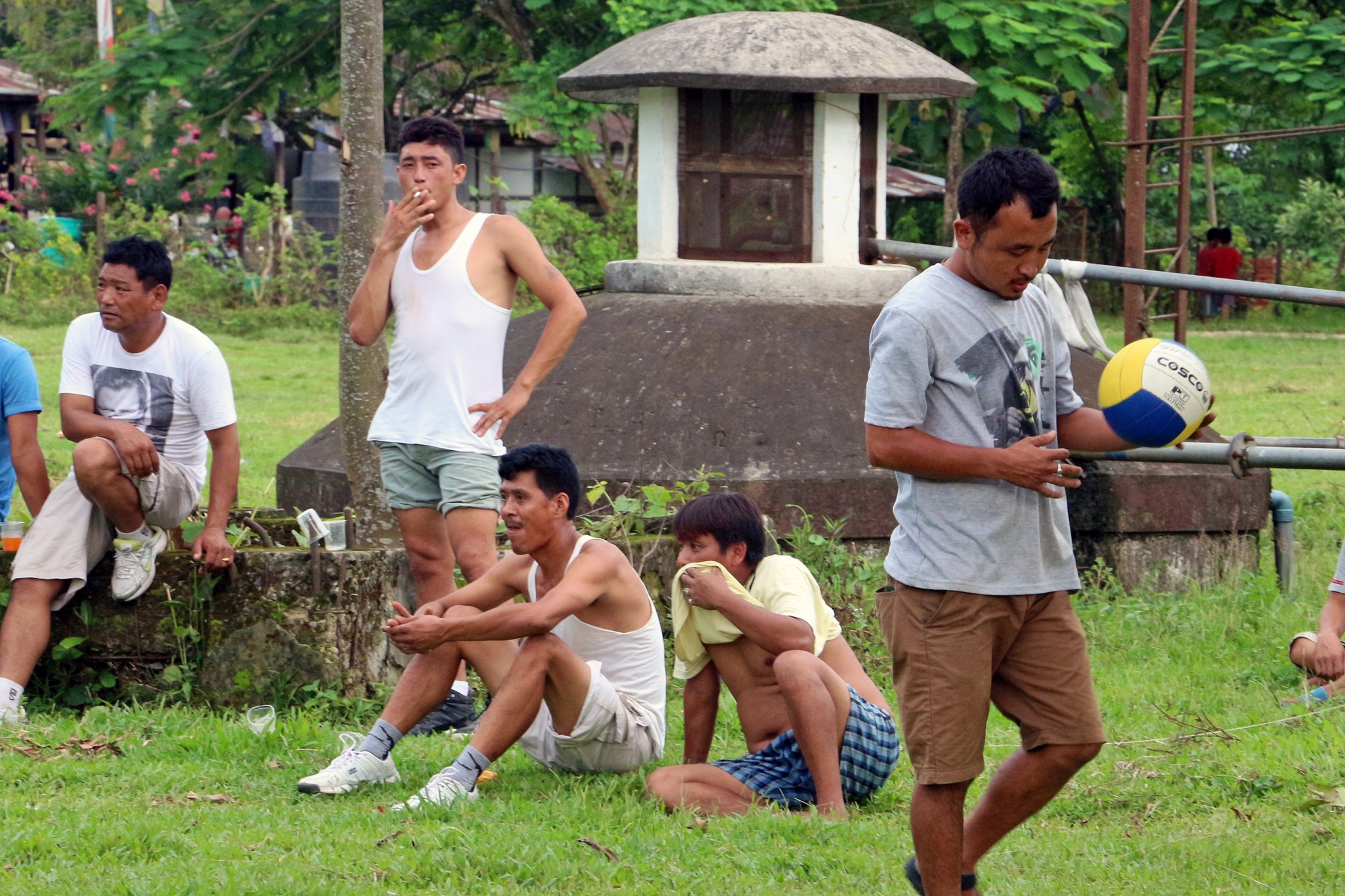Great expectations
Meanwhile, the lottery winners in Camp Three knew they only had a couple months left before their departure. Despite this, life continued as normal for 30-year-old Tenzin Namgyal, who had also won a lottery ticket as a single applicant. This soft-spoken man grew up in a home surrounded by colourful prayer flags and across from a bright red and yellow monastery where he could hear monks chant and bells ring as his neighbours came to turn the prayer wheels. Namgyal’s kind nature must have been influenced by his spiritual upbringing as the grandson of the tantric priest, who brought the monastery to Camp Three. He has a slight stature, with a round face and a shy smile bordered by a goatee that doesn’t quite connect in the middle. Despite his cool-guy appearance with his James Dean-like sunglasses, he’s passionate about protecting his culture.
“Tibetan culture is deep rooted in Buddhism,” he explained. “Our religion is all about peace, non-violence and karma. Karma means, if you do good, good with come to you, if you do bad, then bad will come to you.”
Before he left for Canada, Namgyal did a lot of good. After he won his lottery ticket, he spent a year teaching the elders in his community how to read. He wanted them to be able to read their Buddhist texts so they could pray on their own. He also organized volleyball and soccer competitions for the youths in the community, and prepared for the Dalai Lama’s 79th birthday celebration on July 6.
Namgyal had been exposed to life outside of the settlement. He went to a university in a city in northern India for three years and got his bachelor of arts. In 2005, he took a computer programming course where he met Yangchen Dolkar, who he now calls his “future wife.”
“We met in university. She was the only Tibetan girl and I was the only Tibetan boy,” Namgyal said with a bashful smile.
His girlfriend found a job in Dehradun, a city in northern India, as a website developer but Namgyal had trouble finding employment after college. He decided to return to his settlement to open a small restaurant with his parents. Namgyal and his girlfriend remained together despite the distance between them, and one day he hopes to bring her to Canada to live with him, a place he knew almost nothing about before he left. Like Dolma, in the summer of 2014, he was getting most of his information from friends who’d already left.
“My friends told me that Ottawa is a little bit tougher (than Toronto) to get a job,” Namgyal said without letting it discourage his expectations. He said he hoped to find a “better life by doing some job, earning and doing something good for this settlement.”
This was what worried Nima Dorjee, the president of Project Tibet Society in Canada. Originally he wanted mainly families to immigrate because he knew that bringing singles over would create a pressure for remittance, which is when a single person comes to Canada and overworks him or herself to send money to family back home.
“It causes huge disruption. The risk of that can be huge because now you have whole family members there (in Miao) waiting and dependent on money to be sent from here and they don’t have any reason to work,” Dorjee said.
Another reason Project Tibet Society planned for mostly families to come over was because it would require fewer resources for the resettlement process. Instead of looking after 1,000 singles, they would assist 470 principal applicants, or fathers, who would arrive first, find a job, a house and be ready to support the family when they came three to six months later. But even the best laid plans can go awry. When the Tibetan government-in-exile set up the lottery system in India, Dorjee noticed mostly singles were being selected.
The settlement officer in Miao, Dawa Tsultrim, ran the lottery in his area and said he wanted more singles to go. Remittance was something that he actually banked on. The people of Miao rely on foreign donors to sustain their livelihood. Without donor agencies the community couldn’t maintain facilities like the old age home. Tsultrim doesn’t want Miao to rely on foreign charity anymore. He said he hopes that one day the settlement will become self-reliant by receiving money from the people who immigrated to Canada.
“We are expecting very much from them in return. They are the product of this settlement,” Tsultrim said. “I say in orientations that you have a burden to look after this settlement. If not, at least you have to look after your family and their relatives.”
Namgyal carries that burden with him. August passed and by September it was finally official, he was booked on a flight to Canada. Before he left, Namgyal handed the family restaurant over to his relatives who promised to give half the earnings to his parents who had decided to retire. Namgyal said he planned to send money to his parents as soon as he can.
NEXT PART
Credits
Story and visuals by SHANNON LOUGH
Carleton University 2015

